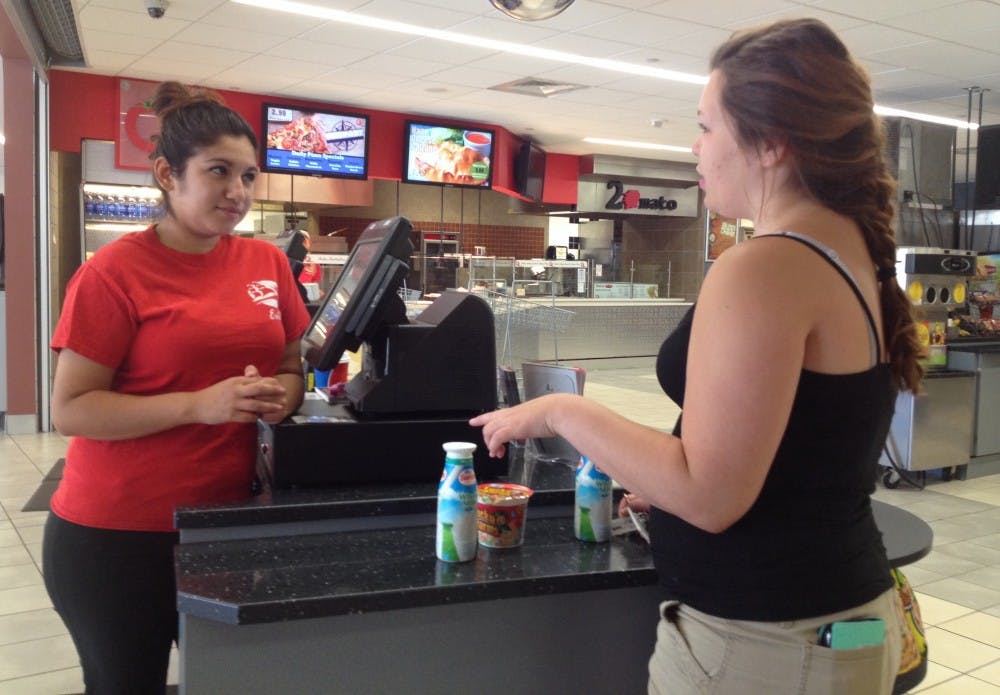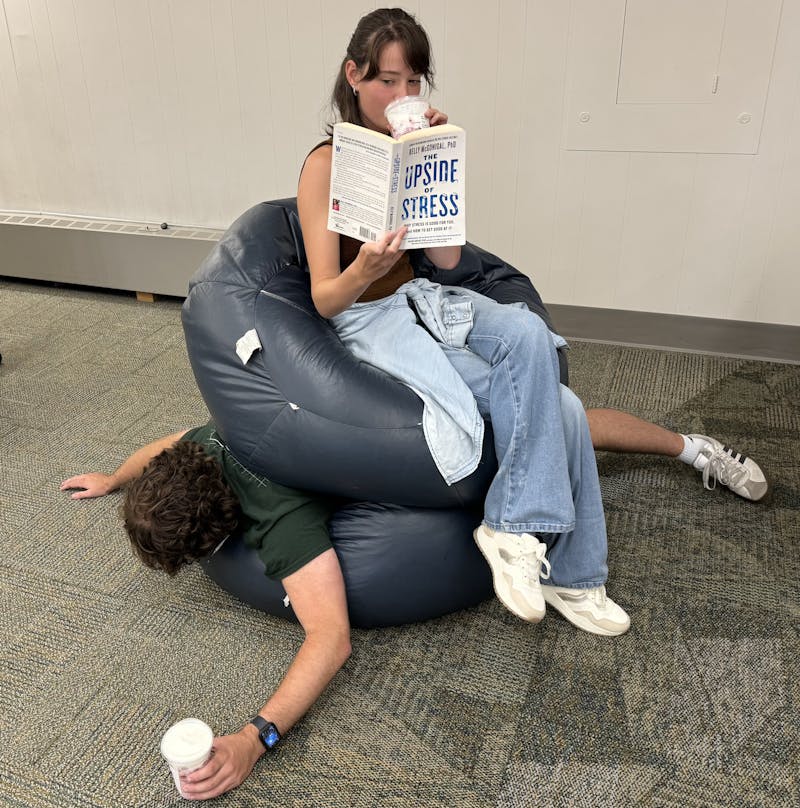For Rebekka Cuadro, a senior at Shippensburg University, she is learning something that is not always taught in a class room — real world skills.
Cuadro has worked on campus since her freshman year — first at Chicken-Dipety and now Starbucks. She filled out an application and was called for an interview a week later. Cuadro said she got the job and was told she could start working the next day, although she waited a week before starting her first on-campus job.
Even a small job teaches people the skills that will prepare them for “real world experiences,” Cuadro said.
“It teaches you time management,” Cuadro said. “It definitely makes you feel independent because you work hard to earn your money, and I feel like this really helped me to learn a valuable skill.”
Working a campus job, which does not necessarily have to be in dining services, has also helped Cuadro meet new people — from other students to faculty, she said.
For students looking for an on-campus job, there are a series of free, 30-minute “Ship Employed” workshops hosted by the Career and Community Engagement Center that explain where to look for a job, how to navigate the application process and how to use SU’s website, Ship Career Connections, said Sarah McDowell, assistant director for the Career and Community Engagement Center.
McDowell said if students are not able to attend the workshops, the Career and Community Engagement Center also has walk-in hours from 2 to 6 p.m. on Mondays and 2 to 4 p.m. on Wednesdays. Students are also welcome to schedule an appointment.
Ship Career Connections offers internships, campus jobs funded by the university, off-campus jobs and work study positions, which are available for those who have financial needs determined through FASFA, McDowell said. There is also a “cheat sheet,” McDowell said — called students-reference sheet- — that can be found on the Career and Community Engagement Center’s website that students can use to learn how to apply, upload their resume and fill out paperwork through Ship Career Connections. Some of the jobs can be applied for online, but others require the student to contact the employer directly to begin the application process, McDowell said.
McDowell said that Ship Career Connections is very easy to navigate.
“It’s like three clicks and you’re in,” McDowell said.
For the most part, Ship Career Connections is easy to use, said junior Ayana Jean, staffing and development manager for the information desk in the CUB.
“It’s pretty self-explanatory. You just have to read the directions carefully,” Jean said.
Whether or not someone should have a job while going to school, is going to come down to students’ individual needs, McDowell said.
“Again, the students really need to consider what’s good for them … some students have been working their entire high school career. For them, this is normal,” McDowell said.
Other students have never worked a job before, so for them it is an adjustment to balance both school work and a job, McDowell said.
Most on-campus jobs are between 10 to 15 hours each week, so McDowell said there is not a huge time commitment. However, there is not much point of working to pay for school if a student is failing classes, McDowell said.
Generally speaking, McDowell said having a job or internship benefits students by teaching them teamwork, communication skills and how to take initiative.
“We definitely advocate for students to get some type of experience before they graduate from Ship,” McDowell said.
Jean works her study time around her work schedule and uses her time wisely, she said. When she has some free time, Jean said she uses it to study and do homework.
“It’s manageable if you have the right mindset and know what you came to school for,” Jean said.




The Slate welcomes thoughtful discussion on all of our stories, but please keep comments civil and on-topic. Read our full guidelines here.